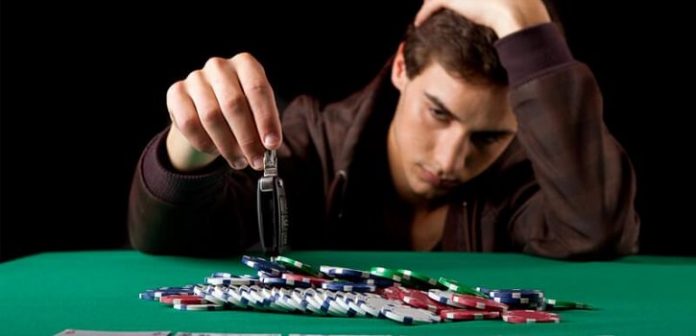While many cities that have gaming machines use the revenue to spend on empty spaces in the budget, there is one county in Illinois northeast of Chicago that uses revenue from gaming machines to help its residents fight gambling addictions. And, that makes it unique.

Lake County
With nearly 750,000 people living in it, Lake County is one of the most populous counties in Illinois. The county has a per capita family income of approximately $91,000 and has about a 7 percent poverty rate. This means that Lake County is relatively prosperous. Employers in Lake County include those in the pharmaceutical, manufacturing, education, and health-care sectors. Warehouses and trucking companies are also located in Lake County. Because the area is so close to Chicagoland, many people who live in Lake County drive into Chicago each day to work.
Gaming Machines
The gaming machines, which are located in Lake County’s convenience stores, bars, liquor stores, and restaurants, pay a percentage of their revenue to the county in the form of a tax. Currently, there are 305 video gambling terminals in unincorporated Lake County, which makes the county fifth in terms of the number of gaming machines available in the state. The gaming machines play a variety of video poker games, depending on the machines. A few of the machines operate as video slot machines, but the video poker machines are far more numerous.
Proceeds from the Machines
Lake County has decided to allocate tax proceeds from its gaming machines to nonprofit groups. The strict policy allows the money from the county to go to one of two nonprofit groups: one that provides treatment for gambling addictions or one that provides mental health services and counseling for people who are low-income and cannot afford counseling and treatment on their own. Last year alone, the amount of money the county received from the gaming machines was more than $545,000.
This fiscal year, which began in July, brought some changes with regard to gaming. First, both behavioral services and gambling addiction services are allowed to apply for multiyear grants, which was not possible before. The ability to apply for multiyear grants means that agencies can seek additional grant funding from other philanthropic or state agencies based on a multiyear grant opportunity, which many social service experts say is vital for sustainable services.
In addition, the revenue projection this fiscal year is expected to rise to $700,000 per year, a $150,000 increase from the previous year. In the past fiscal year, the $545,000 was split between several programs: $150,000 was spent on gambling addiction programs in the county; $120,000 was spent on programs that specialized in homeless outreach; and mental health services were allocated $30,000 for their programs. The remaining $245,000 was allocated for counseling programs for low-income residents and their families.
While many people have stated that gaming revenue from casinos or gaming machines is a social ill, there are some who view gaming as a form of entertainment. And, as long as it is done in moderation, especially if people are doing it as a social event, then the entertainment is relatively harmless. In addition, if gamblers have a budget and are willing to stick to it, then most people view gaming as benign. For those people who live in Lake County, there are more advantages to gaming, especially since the proceeds from the gaming revenue go toward social services. If people are gaming as a form of entertainment, and the proceeds help gambling addicts with treatment programs, as well as mental health programs, the entertainment is also providing a community service.
Disclaimer: All images are copyright to their respective owners and are used by USA Online Casino for informational purposes only.












